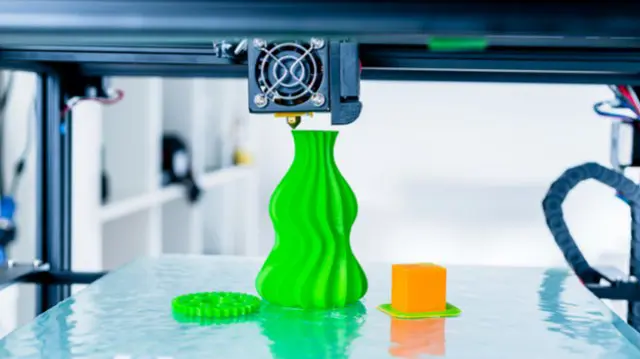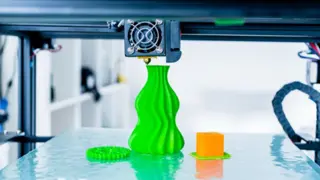
Understanding the A-Z of 3D Printing
Introductory course about various 3D printing processes,applications, materials used & best practices
J. Aatish Roa
Summary
- Reed Courses Certificate of Completion - Free
- Tutor is available to students
Add to basket or enquire
Overview
"In the 20th century, no other invention affected the mankind more than technology did."
With the advent of computers in 1950s and internet in 1990s, the fundamental way of doing things has through a massive change. These technologies made our lives better, opened up new avenues and possibilities and gave us a hope for the future. But it generally takes decades for an ecosystem to be built across a particular technology to take it to masses and achieve the truly disruptive nature of that technology.
It is widely believed that 3D printing or additive manufacturing (AM) has the vast potential to become one of these technologies. There is a lot of coverage on 3D printing across many television channels, newspapers and online resources. Now What really is this 3D printing that some have claimed will put an end to traditional manufacturing as we know it? Revolutionize design and impose geopolitical, economic, social, demographic and environmental and security implications to our everyday lives.
The most basic, differentiating principle behind 3D printing technology is that it is an additive manufacturing process. And this is indeed the key because 3D printing is a radically different manufacturing method based on advanced technology that builds up parts, additively, in layers at the sub mm scale. This is fundamentally different from any other existing traditional manufacturing techniques.
Curriculum
Course media
Description
What will you learn - General explanation of 3D printing, 3D printing procedure, Various types of 3D printing processes, Materials & Applications.
What this course does not cover - How to 3D print.
PS - This is a short introductory course strictly curated for students & curious souls who are completely BEGINNER in this field.
Who is this course for?
- University students or graduates
- 3D printing enthusiasts & hobbyist
- Mechanical engineering graduates & undergraduates.
Requirements
- No prior experience is required since this is an introductory class to 3D printing itself.
- No software requirements as well.
- Just a kin & curious mind & you are good to go.
Career path
-
What Job roles you can apply after completing the course
- 3D printing engineer
Questions and answers
Currently there are no Q&As for this course. Be the first to ask a question.
Certificates
Reed Courses Certificate of Completion
Digital certificate - Included
Will be downloadable when all lectures have been completed.
Reviews
Currently there are no reviews for this course. Be the first to leave a review.
Legal information
This course is advertised on reed.co.uk by the Course Provider, whose terms and conditions apply. Purchases are made directly from the Course Provider, and as such, content and materials are supplied by the Course Provider directly. Reed is acting as agent and not reseller in relation to this course. Reed's only responsibility is to facilitate your payment for the course. It is your responsibility to review and agree to the Course Provider's terms and conditions and satisfy yourself as to the suitability of the course you intend to purchase. Reed will not have any responsibility for the content of the course and/or associated materials.


